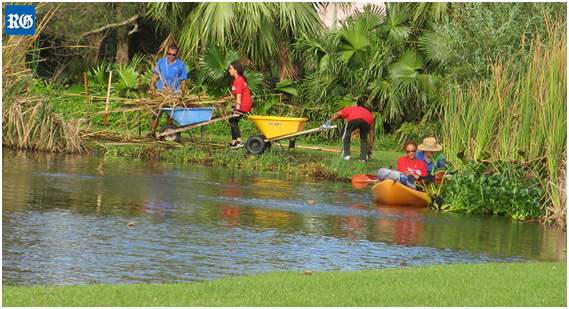Recent News
Turtle Project Has ‘Another Exceptional Year’Wednesday, October 26, 2016
The Bermuda Turtle Project, based at the Bermuda Aquarium Museum and Zoo, recently finished its 49th year of study of the sea turtles in Bermuda waters.
Island’s turtle mystery unsolved
Monday, October 10, 2016
Mystery surrounds the origin of turtle hatchlings that shocked the island last summer.
Grill night kick-starts new Azu Beastro era
Friday, October 07, 2016
Andy Detzer knew he was facing an uphill battle when he took over Azu Beastro.
Rescued turtle arrives in Florida
Saturday, October 01, 2016
A stricken turtle that was nursed back to health by aquarium staff and successfully released to the wild has travelled more than 1,600 miles to the coast of Florida.
Ocean Tech - Justifying Marine Protection
Wednesday, September 28, 2016
Justifying Marine Protection
About
GovernanceAbout Us
Newsletter
Latest News
Gift & Bookstore
Contact
General Inquiries
info@bzs.bm
Latest News
All the latest updates and news from the Bermuda Aquarium, Museum, and Zoo, one of Bermuda's leading visitor attractions!
Jonathan Bell
Published Jan 16, 2018 at 8:00 am (Updated Jan 16, 2018 at 6:41 am)

HSBC volunteers help a Bermuda Zoological society team clean up
Cloverdale Pond in Smith's (Photograph supplied)
Two ponds have been cleaned up courtesy of an island conservation programme.
Cloverdale Pond in Smith’s and Southampton’s Evan’s Pond, a refuge for endangered species, were improved through the Bermuda Zoological Society’s wetlands remediation programme.
The scheme, which became the HSBC global water programme for Bermuda in 2014, was designed to remove toxic petroleum compounds from ponds.
The build-up of the poisonous hydrocarbons is a threat to the island’s two endemic killifish species, as well as native diamondback terrapins, which are a protected species.
The compounds, which come from oil, water runoff and vehicle exhausts, can be broken down by bacteria when the pond sediments are aerated.
The two-year grant from HSBC allowed the proposal to be tested in the field.
Volunteers also took part, with help from the Department of Environment and Natural Resources.
The BZS said Cloverdale was chosen first because of its small size, its “known severe effects on wildlife” and the absence of protected species in the water.
Evan’s Pond was selected as the second test site because of its small population of killifish.
The ponds were divided into sections and aerated for six to eight hours a day with solar powered compressors.
Hydrocarbon levels saw a major reduction over the course of a year.
The next site for remediation is the South Pond at the Mid Ocean golf course, where the hatching of diamondback terrapins has been hampered by pollution.


